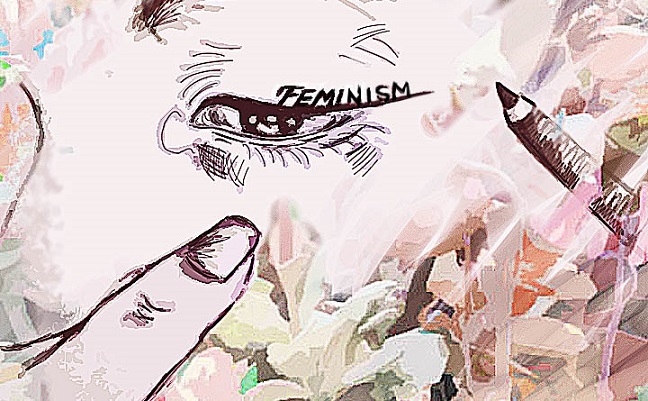Reclaiming “Feminist”

Mainstream media has managed to morph the contemporary feminist into a stereotypical man-hating white woman who defiantly rejects traditional notions of femininity. However this stereotype represents, as many stereotypes do, only a small fraction (if any) of the feminist population and is more commonly associated with radicals of the feminist ideology.
In reality, a feminist can be anyone – you don’t even have to be a woman!
Unfortunately, the feminist stereotype carries a heavy negative connotation as it implies a sense of blind passionate activism against the oppression of the female body and voice while blaming these issues on individuals, typically men, without addressing the real social, economic and political ideologies behind feminist issues.
In reality, the feminist movement is a complex array of a wide variety of ideologies, interwoven into and sometimes clashing against each other.
Further, these ideologies are based upon rhetoric and images, and can inspire very strong emotional reactions. It is these very characteristics that make discussions so difficult.
To negatively emotionally react when hearing the word “feminist,” while it may be understandable due to the radical depictions of feminism in the media, is a reaction of ignorance. It’s a reflection of the fact that you have fallen into what society has painted the stereotypical feminist to be, rather than being open to learning about the real issues behind the term.
By reacting negatively to the word, you eradicate any possibility for important discussions to take place.
You silence the voices of your mother, sister, wife, daughter and moreover, you silence your own voice. Feminism isn’t only about voicing the struggles of the female experience and fighting to change them, it benefits women and men alike.
At its most basic level, Wikipedia defines feminism as “a collection of movements and ideologies that share a common goal: to define, establish, and achieve equal political, economic, cultural, personal, and social rights for women.” Nowhere does this definition claim that feminists think they are better than men or that the female struggle is worse or more important than the struggles men face.
It’s not a competition of “who is more oppressed,” it’s a goal that we all are working towards to make all our lives better.
As Kelly Temple states, “Men who want to be feminists do not need to be given a space in feminism. They need to take the space they have in society and make it feminist.”
As Aziz Ansari brilliantly states:
“If you believe that men and women have equal rights and then someone asks if you’re a feminist, you have to say yes. Because that’s how words work. You can’t be like ‘Yeah, I’m a doctor that primarily does diseases of the skin.’ ‘Oh, so you’re a dermatologist?’ ‘Oh no, that’s way too an aggressive word, not at all, not at all.’”
That’s how words work. Rhetoric is critical for discussions, particularly discussions about social justice, because they carry the weight and history of the issues being talked about. Words and language are how we communicate with each other, how we convey our ideas, and to have a word like “feminist” carry such a negative connotation is detrimental. It is critical to our understanding of feminism itself because of the history, depth and complexity it holds. It’s something that can no longer be something that someone is afraid to say or hear.




